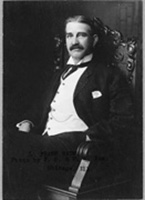
Emily J M Knox
Born:
Pen Name: Emily Knox, Emily J Knox Connection to Illinois: Knox is an associate professor in the School of Information Sciences at the University of Illinois at Urbana-Champaign. Biography: Emily J M Knox is an associate professor in the School of Information Sciences at the University of Illinois at Urbana-Champaign. She received her doctoral degree from the School of Communication & Information at Rutgers University. Her research interests include intellectual freedom and censorship; print culture and reading practices; and information ethics and policy. She was the Associate Director and Reference Librarian at the St. Mark's (now Keller) Library of the General Theological Seminary of the Episcopal Church in New York City for five years before returning to school.
Awards:
LinkedIn: https://www.linkedin.com/in/ejknox/
Twitter: https://x.com/ejmknox
Web: https://www.emilyknox.net/
Selected Titles
 |
Book Banning in 21st-Century America ISBN: 144223167X OCLC: 900540323 Rowman & Littlefield Publishers 2015 Requests for the removal, relocation, and restriction of books—also known as challenges—occur with some frequency in the United States. Book Banning in 21st-Century American Libraries, based on thirteen contemporary book challenge cases in schools and public libraries across the United States argues that understanding contemporary reading practices, especially interpretive strategies, is vital to understanding why people attempt to censor books in schools and public libraries.Previous research on censorship tends to focus on legal frameworks centered on Supreme Court cases, historical case studies, and bibliographies of texts that are targeted for removal or relocation and is often concerned with how censorship occurs. The current project, on the other hand, is focused on the why of censorship and posits that many censorship behaviors and practices, such as challenging books, are intimately tied to the how one understands the practice of reading and its effects on character development and behavior. It discusses reading as a social practice that has changed over time and encompasses different physical modalities and interpretive strategies. In order to understand why people challenge books, it presents a model of how the practice of reading is understood by challengers including “what it means” to read a text, and especially how one constructs the idea of “appropriate” reading materials.The book is based on three different kinds sources. The first consists of documents including requests for reconsideration and letters, obtained via Freedom of Information Act requests to governing bodies, produced in the course of challenge cases. Recordings of book challenge public hearings constitute the second source of data. Finally, the third source of data is interviews with challengers themselves.The book offers a model of the reading practices of challengers. It demonstrates that challengers are particularly influenced by what might be called a literal “common sense” orientation to text wherein there is little room for polysemic interpretation (multiple meanings for text). That is, the meaning of texts is always clear and there is only one avenue for interpretation. This common-sense interpretive strategy is coupled with what Cathy Davidson calls “undisciplined imagination” wherein the reader is unable to maintain distance between the events in a text and his or her own response. These reading practices broaden our understanding of why people attempt to censor books in public institutions. |
 |
Document Delivery and Interlibrary Loan on a Shoestring ISBN: 1555706789 OCLC: 434744930 ALA Neal-Schuman New York : 2010 Written specifically for libraries facing budgetary constraints, limited resources and inadequate training, this invaluable guide outlines the time-management skills and technical ingenuity that will help transform Interlibrary Loan (ILL) and document delivery service into an efficient and organized operation. Author Emily Knox considers the unique challenges of ILL for the librarian juggling multiple roles, and provides a comprehensive overview of best practices, policies and service guidelines that can be easily and practically applied no matter how busy you are. Document Delivery and Interlibrary Loan on a Shoestring provides a jargon-free breakdown of the laws, codes and regulations that govern ILL and document delivery policy decisions. There is guidance to help you develop compliant and cost effective policies, streamline borrowing and lending procedures, and optimize workflow. While there is a thorough overview of the field's newest time-saving technologies, Knox also explains the many ways in which smaller institutions can go paperless for less, with practical tips for using widely available office technology and free open source products to receive and track ILL and document delivery transactions. The book also includes helpful illustrations and appendices with templates for easily reproducible forms, as well as examples of best practices and real life policies used in both public and academic libraries. |
 |
Foundations of Information Ethics ISBN: 0838917224 OCLC: 1112153029 ALA Neal-Schuman 2019 As discussions about the roles played by information in economic, political, and social arenas continue to evolve, the need for an intellectual primer on information ethics that also functions as a solid working casebook for LIS students and professionals has never been more urgent. This text, written by a stellar group of ethics scholars and contributors from around the globe, expertly fills that need. Organized into twelve chapters, making it ideal for use by instructors, this volume from editors Burgess and Knoxthoroughly covers principles and concepts in information ethics, as well as the history of ethics in the information professions;examines human rights, information access, privacy, discourse, intellectual property, censorship, data and cybersecurity ethics, intercultural information ethics, and global digital citizenship and responsibility;synthesizes the philosophical underpinnings of these key subjects with abundant primary source material to provide historical context along with timely and relevant case studies;features contributions from John M. Budd, Paul T. Jaeger, Rachel Fischer, Margaret Zimmerman, Kathrine A. Henderson, Peter Darch, Michael Zimmer, and Masooda Bashir, among others; andoffers a special concluding chapter by Amelia Gibson that explores emerging issues in information ethics, including discussions ranging from the ethics of social media and social movements to AI decision making.This important survey will be a key text for LIS students and an essential reference work for practitioners.Examination copies are available for instructors who are interested in adopting this title for course use. |
 |
Foundations of Intellectual Freedom ISBN: 0838937837 OCLC: 1333438830 ALA Neal-Schuman 2022 Enshrined in the mission statement of ALA, intellectual freedom is one of the core values of the information professions. The importance of ensuring information access to all, and the historical, social, and legal foundations of this commitment, are powerfully explored in this essential primer. Designed to function as both an introductory text for LIS students as well as a complementary resource for current professionals, this book provides a cohesive, holistic perspective on intellectual freedom. Extending beyond censorship to encompass such timely and urgent topics as hate speech and social justice, from this book readers will gain an understanding ofthe historical and legal roots of intellectual freedom, with an in-depth examination of John Stuart Mill’s “On Liberty” and Article 19 of the U.N Declaration of Human Rights, and its central concepts and principles; the intersection of intellectual freedom, freedom of expression, and social justice;professional values, codes of ethics, ALA’s Library Bill of Rights, and Freedom to Read/View Statements;pro- and anti- censorship arguments and their use in impeding and facilitating access to information;book banning and internet filtering;privacy and its relationship to information services;U.S. case law and precedents;the basics of U.S. copyright law, including fair use, and how it differs from international copyright law; andemerging global issues and their impact on future intellectual freedom. |
 |
Trigger Warnings: History, Theory, Context ISBN: 1442273712 OCLC: 973920466 Rowman & Littlefield Publishers 2017 With “triggered” as Google’s most searched word of 2016, trigger warnings have become a prevalent yet controversial concept in American higher education and society. As the debate over the value and place of triggering material continues, Trigger Warnings: History, Theory, Context provides the historical context and theoretical analysis of the use of trigger and content warnings in academia. This important edited collection examines the history, theories, and ethics of trigger warnings and presents case studies from instructors and students describing instances when trigger warnings were and were not used. By exploring the issue through several scholarly lenses and providing examples of when trigger warnings may or may not be used effectively, Trigger Warnings provides rigorous analysis of the controversy |




